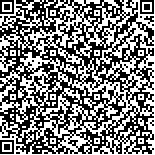| 引用本文: |
马若梦,李定祥,彭珣,李钰佳,阳晶晶,邓奕辉.MCAO模型大鼠不同缺血时相、不同脑区Thrombin与LC3Ⅱ/Ⅰ表达的相关性研究[J].湖南中医药大学学报,2022,42(6):899-905[点击复制] |
|
| |
|
|
| 本文已被:浏览 3308次 下载 1271次 |
| MCAO模型大鼠不同缺血时相、不同脑区Thrombin与LC3Ⅱ/Ⅰ表达的相关性研究 |
| 马若梦,李定祥,彭珣,李钰佳,阳晶晶,邓奕辉 |
| (湖南中医药大学中西医结合学院, 湖南 长沙 410208;湖南中医药大学中西医结合心脑疾病防治湖南省重点实验室, 湖南 长沙 410208;湖南中医药大学中医学院, 湖南 长沙 410208)) |
| 摘要: |
| 目的 研究缺血性中风瘀毒互结模型(简称“IS-YD”)大鼠在不同缺血时相、不同脑区凝血酶(Thrombin)与微管相关蛋白1轻链3(light chain 3,LC3)的动态性变化及二者的相关性。方法 将128只SD雄性大鼠随机分为假手术组、IS-YD(2 h、4 h、8 h、12 h、24 h、48 h、72 h)组,每组16只。分别于术后2、4、8、12、24、48、72 h取材前进行神经功能缺损评分,随即处死大鼠取出脑组织并分出大脑皮质与海马,2,3,5-三苯基氯化四氮唑染色观察并计算每组大鼠的脑梗死体积,Western blot法检测大脑皮质与海马的Thrombin、LC3Ⅱ/Ⅰ比值的表达。结果 与假手术组相比,IS-YD 12 h、24 h、48 h组神经功能缺损评分升高(P<0.05)。与假手术组及IS-YD 2 h、4 h组相比,IS-YD 8 h、12 h、24 h、48 h、72 h组脑梗死体积显著增大(P<0.01);与IS-YD 8 h组相比,IS-YD 12 h、24 h、48 h、72 h组脑梗死体积显著增大(P<0.01);与IS-YD 12 h组相比,IS-YD 48 h、72 h组脑梗死体积显著增大(P<0.01);与IS-YD 24 h组相比,IS-YD 48 h、72 h组脑梗死体积显著增大(P<0.01);与IS-YD 48 h组相比,IS-YD 72 h组脑梗死体积显著增大(P<0.01)。与假手术组相比,IS-YD 12 h、24 h组皮质和海马Thrombin、LC3Ⅱ/Ⅰ表达显著增强(P<0.05);与IS-YD 2 h、4 h组相比,IS-YD 12 h、24 h组皮质和海马Thrombin、LC3Ⅱ/Ⅰ表达显著增强(P<0.05);与IS-YD 8 h组相比,IS-YD 12 h、24 h组皮质LC3Ⅱ/Ⅰ表达显著增强(P<0.01);与IS-YD 12 h组相比,IS-YD 48 h、72 h组皮质Thrombin、LC3Ⅱ/Ⅰ表达显著降低(P<0.05),海马LC3Ⅱ/Ⅰ表达显著降低(P<0.05);与IS-YD 24 h组相比,IS-YD 48 h、72 h组皮质和海马Thrombin、LC3Ⅱ/Ⅰ表达显著降低(P<0.05)。两种蛋白呈现直线相关性,且皮质Thrombin与LC3Ⅱ/Ⅰ的密切程度为56.7%,海马Thrombin、LC3Ⅱ/Ⅰ的密切程度为53.3%。结论 脑损伤后Thrombin与自噬相关蛋白LC3Ⅱ/Ⅰ在7个不同缺血时间点动态表达规律相似,并且具有高度相关性,同时明确了自噬变化最明显的两个时间点,也为进一步研究治疗脑梗死筛选了最佳药物反应时间点。 |
| 关键词: 凝血酶 自噬 缺血性中风 瘀毒互结 化瘀解毒法 微管相关蛋白1轻链3 2,3,5-三苯基氯化四氮唑 |
| DOI:10.3969/j.issn.1674-070X.2022.06.005 |
| 投稿时间:2021-09-08 |
| 基金项目:国家自然科学基金项目(81874416)。 |
|
| Correlation of Thrombin and LC3Ⅱ/Ⅰ expression in different ischemic phases and different brain regions in MCAO model rats |
| MA Ruomeng,LI Dingxiang,PENG Xun,LI Yujia,YANG Jingjing,DENG Yihui |
| (College of Integrated Traditional Chinese and Western Medicine, Hunan University of Chinese Medicine, Changsha, Hunan 410208, China;Key Laboratory of Hunan Province for Integrated Traditional Chinese and Western Medicine on Prevention and Treatment of Cardio-Cerebral Diseases, Changsha, Hunan 410208, China;College of Traditional Chinese Medicine, Hunan University of Chinese Medicine, Changsha, Hunan 410208, China) |
| Abstract: |
| Objective To study the dynamic changes of Thrombin and microtubule-associated protein 1 light chain 3 (LC3) in different ischemic phases and different brain regions in ischemic stroke with blood stasis and toxin interaction model ("IS-YD") and their correlation. Methods A total of 128 SD male rats were randomly divided into sham operation group and IS-YD (2 h, 4 h, 8 h, 12 h, 24 h, 48 h, 72 h) groups, with 16 rats in each group. Neurological deficits were scored at 2, 4, 8, 12, 24, 48, and 72 hours after the operation, respectively, and then the rats were sacrificed to remove the brain tissue, and the cerebral cortex and hippocampus were separated. The volume of cerebral infarction in each group was observed and calculated by 2,3,5-triphenyltetrazole chloride staining, and the expression of Thrombin and LC3Ⅱ/Ⅰ ratio in cerebral cortex and hippocampus was detected by Western blot method. Results Compared with the sham operation group, the IS-YD 12 h, 24 h and 48 h groups had higher neurological deficit scores (P<0.05). Compared with the sham operation group and the IS-YD 2 h, 4 h groups, the cerebral infarction volume in the IS-YD 8 h, 12 h, 24 h, 48 h, and 72 h groups was significantly increased (P<0.01); compared with the IS-YD 8 h group, the volume of cerebral infarction in the IS-YD 12 h, 24 h, 48 h, and 72 h groups increased significantly (P<0.01); compared with IS-YD 24 h group, the cerebral infarction volume of IS-YD 48 h and 72 h groups increased significantly (P<0.01); compared with the 48 h group, the volume of cerebral infarction in the IS-YD 72 h group was significantly increased (P<0.01). Compared with the sham operation group, the expression levels of Thrombin and LC3II/I in the cortex and hippocampus of the IS-YD 12 h and 24 h groups were significantly enhanced (P<0.05); compared with the IS-YD 2 h and 4 h groups, the expression levels of Thrombin and LC3Ⅱ/Ⅰ in the cortex and hippocampus of the IS-YD 12 h and 24 h groups were significantly enhanced (P<0.05); compared with IS-YD 8 h group, the expression of LC3Ⅱ/Ⅰ in the cortex of the IS-YD 12 h and 24 h groups was significantly enhanced (P<0.01); compared with IS-YD 12 h group, the expression levels of Thrombin and LC3II/I in the cortex of the IS-YD 48 h, 72 h groups were significantly decreased (P<0.05), and the expression of LC3II/I in the hippocampus was significantly decreased (P<0.05); compared with IS-YD 24 h group, the expression levels of Thrombin and LC3Ⅱ/Ⅰ in the cortex and hippocampus were significantly decreased (P<0.05). The two proteins showed a linear correlation, and the correlation between Thrombin and LC3Ⅱ/Ⅰ was 56.7% in the cortex and 53.3% in the hippoc-ampus. Conclusion After brain injury, Thrombin and autophagy-related protein LC3Ⅱ/Ⅰ have similar dynamic expression patterns at seven different ischemia time points, and are highly correlated. At the same time, the two time points with the most obvious changes in autophagy are identified, and the optimal time points of drug reaction are screened for further study on the treatment of cerebral infarction. |
| Key words: Thrombin autophagy ischemic stroke blood stasis and toxin interaction removing blood stasis and detoxification method microtubule-associated protein 1 light chain 3 2,3,5-triphenyltetrazole chloride |
|

二维码(扫一下试试看!) |
|
|
|
|




